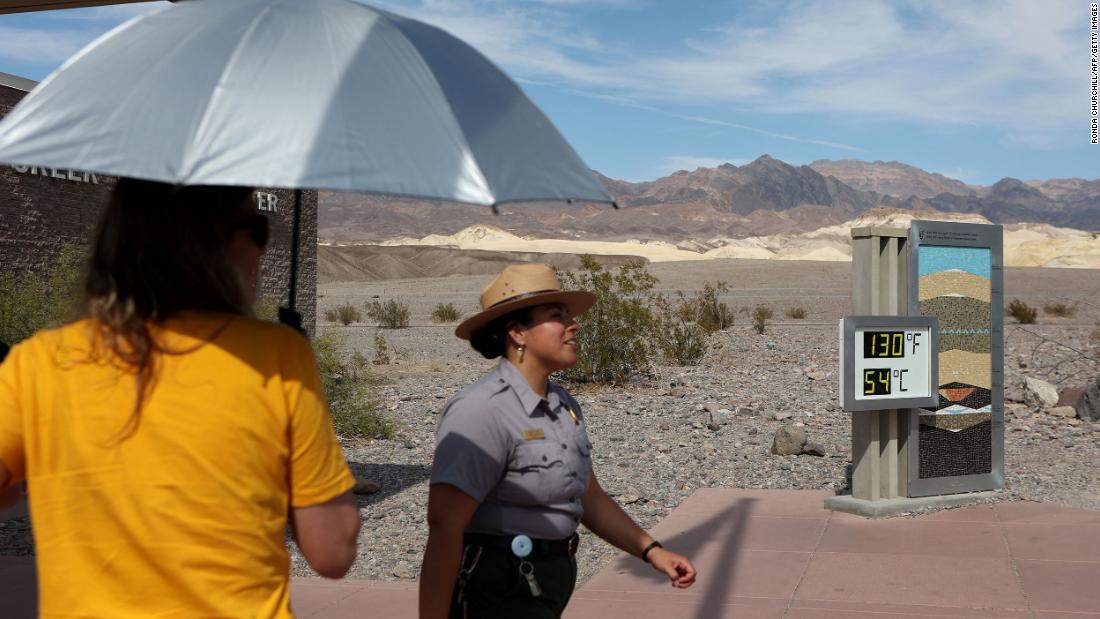- by foxnews
- 26 Nov 2024
This month is the planet's hottest on record by far -- and hottest in around 120,000 years, scientists say

As vast swaths of three continents bake under blistering temperatures and the oceans heat to unprecedented levels, scientists from two global climate authorities are reporting before July has even ended that this month will be the planet's hottest on record by far.
The heat in July has already been so extreme that it is "virtually certain" this month will break records "by a significant margin," the European Union's Copernicus Climate Change Service and the World Meteorological Organization said in a report published Thursday.
We have just lived through the hottest three-week-period on record - and almost certainly in more than a hundred thousand years.
Typically these records, which track the average air temperature across the entire world, are broken by hundredths of a degree. But the temperature for the first 23 days of July averaged 16.95 degrees Celsius (62.51 Fahrenheit), well above the previous record of 16.63 degrees Celsius (61.93 Fahrenheit) set in July 2019, according to the report.
The data used to track these records goes back to 1940, but many scientists - including those at Copernicus - say it's almost certain that these temperatures are the warmest the planet has seen in 120,000 years, given what we know from millennia of climate data extracted from tree rings, coral reefs and deep sea sediment cores.
"These are the hottest temperatures in human history," said Samantha Burgess, deputy director at Copernicus.
It all adds up to a blistering Northern Hemisphere summer - potentially an unprecedented one. "The odds are certainly in a favor of a record-breaking summer," said Carlo Buontempo, the director of Copernicus, although he cautioned that it's too early to state that with confidence.
The human toll of the heat is stark. As temperatures have risen above 120 degrees Fahrenheit (50 degrees Celsius) in parts of the US, heat-related deaths have mounted and people are suffering life-threatening burns from falling onto scorching hot ground.
In the Mediterranean, more than 40 people have died as wildfires rage across the region, fueled by high temperatures. In Asia, prolonged, intense heat waves are claiming lives and threatening food security.
Human-caused climate change is the main driver of this extraordinary heat, Burgess said. "The global air temperature is directly proportional to the concentration of greenhouse gases in the atmosphere."
A recent study found that climate change played an "absolutely overwhelming" role in the heat waves in the US, China and southern Europe this summer.
The news that July will be the hottest month comes amid a slew of alarming records that have already been broken - and then broken again - this summer.
Last month was the hottest June on record by a "substantial margin," according to Copernicus.
Then in July, the world experienced its hottest day on record. On July 6, the global average temperature rose to 17.08 degrees Celsius (62.74 Fahrenheit), according to Copernicus data, beating the previous temperature record of 16.8 degrees Celsius (62.24 Fahrenheit) set in August 2016.
Every day since July 3 has been hotter than the 2016 record.
"We are seven months into 2023 and almost every month this year has been in the top five hottest on record," said Burgess, adding that if the trends continue into the fall and winter, 2023 is likely to be among the warmest years ever recorded.
Ocean heat is also at record levels. In mid-May, global ocean surface temperatures reached "unprecedented levels" for the time of year.
"What we're seeing right now, we've not seen before," said Burgess.
Kim Cobb, a climate scientist at Brown University who was not involved in the report, called the new July temperature record "eye-popping," but warned that it will be broken again.
"It is scary to remember that in another decade, this will be viewed as a relatively cool year, most likely," she said, adding, "if people don't like what they're seeing this summer, they will be in for quite a shock at the higher warming levels we're heading for."
Petteri Taalas, secretary-general of the WMO, said July's extreme weather reveals "the harsh reality of climate change."
"The need to reduce greenhouse gas emissions is more urgent than ever before" he said in a statement. "Climate action is not a luxury but a must."
- by foxnews
- descember 09, 2016
The world's oldest Douglas fir trees have lived over 1,000 years
The Douglas fir, the state tree of Oregon, can grow incredibly tall and live impressively long. The oldest Douglas fir trees have lived to be over 1,000 years old.
read more


